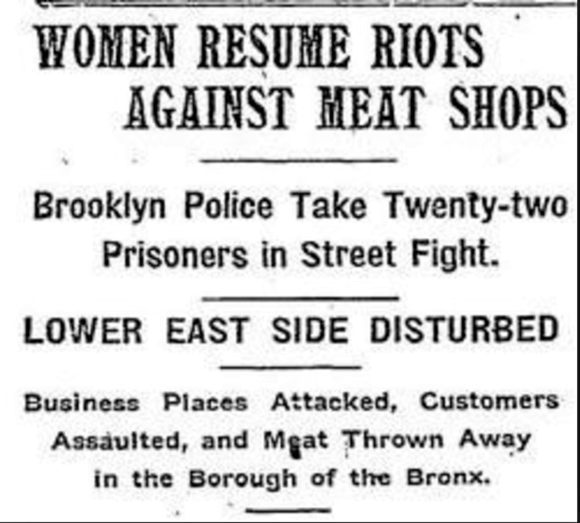I was shocked when I first heard Jewish leaders in my community denounce the international Boycott, Divestment and Sanctions (BDS) movement started by Palestinians living in the West Bank. Call me naive, but considering Israelis had been living under the threat of bombs exploding on buses, in shopping malls, restaurants, and other public places, there should have been a collective sigh of relief when Palestinian civil society chose a non-violent means to resist a fifty year old military occupation. Their legal right to stand up to oppression, including the use of force, is codified in the Fourth Geneva Convention.
In 2012, our local Friends of Sabeel group in Albuquerque was organizing a national conference on the Palestinian-Israeli conflict. Wanting the event to be inclusive, we invited all denominations of Christian, Jewish, Muslim and any religious permutation imaginable. However before endorsing the upcoming conference, the leader of the National Council of Churches asked to speak with local Jews. They were worried about accusations of antisemitism. I volunteered. But by the time the church meeting happened, the only Jew-without-a-title sitting around the table was me. The circle included a rabbi, cantor, Hillel leader, and Jewish Federation representative. Before the meeting, the church leader had asked me to remain silent, “So the Jewish community will feel heard,” she’d said. There was no need to point out that I was part of this community. She knew.
I didn’t speak until the Jewish community leaders explained that BDS threatened to “delegitimize Israel”. What does that mean? Did they think Britain might rescind the 1917 Balfour Declaration establishing a homeland for the Jewish people in Palestine? Or, the world would demand a return to the borders as defined by the 1947 UN Mandate to divide Palestine into Jewish and Arab areas? Did they worry Israel would cease to exist because the country had broken the promise for “complete equality of social and political rights to all its inhabitants, irrespective of religion race or sex…” as stated in the Declaration of the State of Israel, May 15, 1948? Has any national entity ever been delegitimized because of transgressions of international law?
Shining a light on fear: non-Jews fear being labeled anti-semitic. Jews fear the delegitimization of Israel. Israeli-Jews fear suicide bombers and Arabs multiplying faster which threatens Jewish dominance in the “Jewish democracy.” The demographic fear is invoked whenever anyone suggests that Israel should become a secular democracy for all the people living between the Mediterranean and the Jordan River. Ironically, Bernie Sanders, the first Jewish-American to ever become a major contender for president of the United States, had overwhelming support from Muslim-Americans. People do not vote for someone based on religious affiliation. They vote for someone who will represent their interests and values.
Palestinians, who exist under the thumb of the most powerful army in the Middle East, fear the loss of their land, the destruction of their homes, their lack of freedom, their inability to keep their children safe, and more. A heavy blanket of fear covers everyone.
The Israeli Knesset recently passed legislation barring entry into the country to any foreign national who openly calls for a boycott of Israeli products and institutions, even if the boycott is restricted to West Bank settlements. Omar Barghouti, a Palestinian with permanent residency in Israel has been arrested, released and subject to ongoing intimidation. Accused of tax evasion, he happens to be the founder and internationally recognized spokesperson for the international BDS movement.
Boycotts do not delegitimize Israel, nor are they anti-Semitic. In fact, boycott has a long history in the Jewish community.

In 1902 a group of Jewish women on the Lower East Side of New York started a boycott protesting the rising price of kosher meat from 12-18 cents per pound. Inspired by the labor and suffragette movement, the women organized, agitated and challenged the corporations of their day who had made kosher meat unaffordable. The women convinced neighbors not to buy kosher meat, broke into kosher butcher shops and set the meat on fire. They forcefully took meat away from those who betrayed the boycott.
Sickness was no excuse. The women boycotters were arrested and put in prison. The New York Times called them ignorant, dangerous and accused them of speaking a foreign language. The boycott spread to other Jewish communities in New York and beyond. About one month after the boycott began, the powerful trusts of the day dropped the price of kosher meat. Many of the women were not yet American citizens, but they understood about resisting oppression by organizing and standing together. Perhaps the Palestinians read the history books and learned about the kosher meat boycott of 1902. Here’s a new trope––boycott is kosher.
We live in a global village. The only way to unshackle ourselves from the chains of fear and racism is to sit down and talk. Share bread, matzoh, pita, chapatis, tortillas, naan, fry bread, baguettes, sprouted grain, focaccia, gluten free or any staff of life you choose.



Great article Iris: How did you hear of the 1902 boycott?
Didn’t Jews also support the civil rights movement in the USA in the 1960s which themselves involved boycotts (bus boycotts in Montgomery)? Of course, those were Black boycotts, but Jews supported them. Could that provide a shpritz of Kashrut for boycotts? (Of course most of that happened before 1967, when mainstream Jewish morality underwent a sea-change.)
I thought about all the socialist and communist Jews who were involved with social justice and felt that boycott was in line with that lineage. It was not hard to find out that Jews have embraced boycott as a way to protest. In fact, Annie Robbins, uncovered an interesting history about boycotts. In 1933, as part of an anti-Nazi campaign, Jews boycotted German goods in Lithuania, the US, Britain, Poland and British ruled Palestine!
Boycotts are part of the struggle for survival; the French boycott of England led by Napoleon stimulated British industry and made it leaner and more efficient. Boycotts also generate publicity and there is no such a thing as bad publicity. So if boycotts of Israeli tomatoes are in the news, there is one guy who won’t buy them, and another guy who first heard of them and buy them over the ten other types of tomatoes. With boycotts, we can expect Israeli industry to become more competitive until the positive and negative effects offset each other.
I think that overall, Israel is so vocally against the boycotts precisely because they ultimately benefit it. Looking at Israeli exports, a very tiny portion is aimed at the individual consumer. Most of it is energy and high tech stuff that governments and corporations buy.